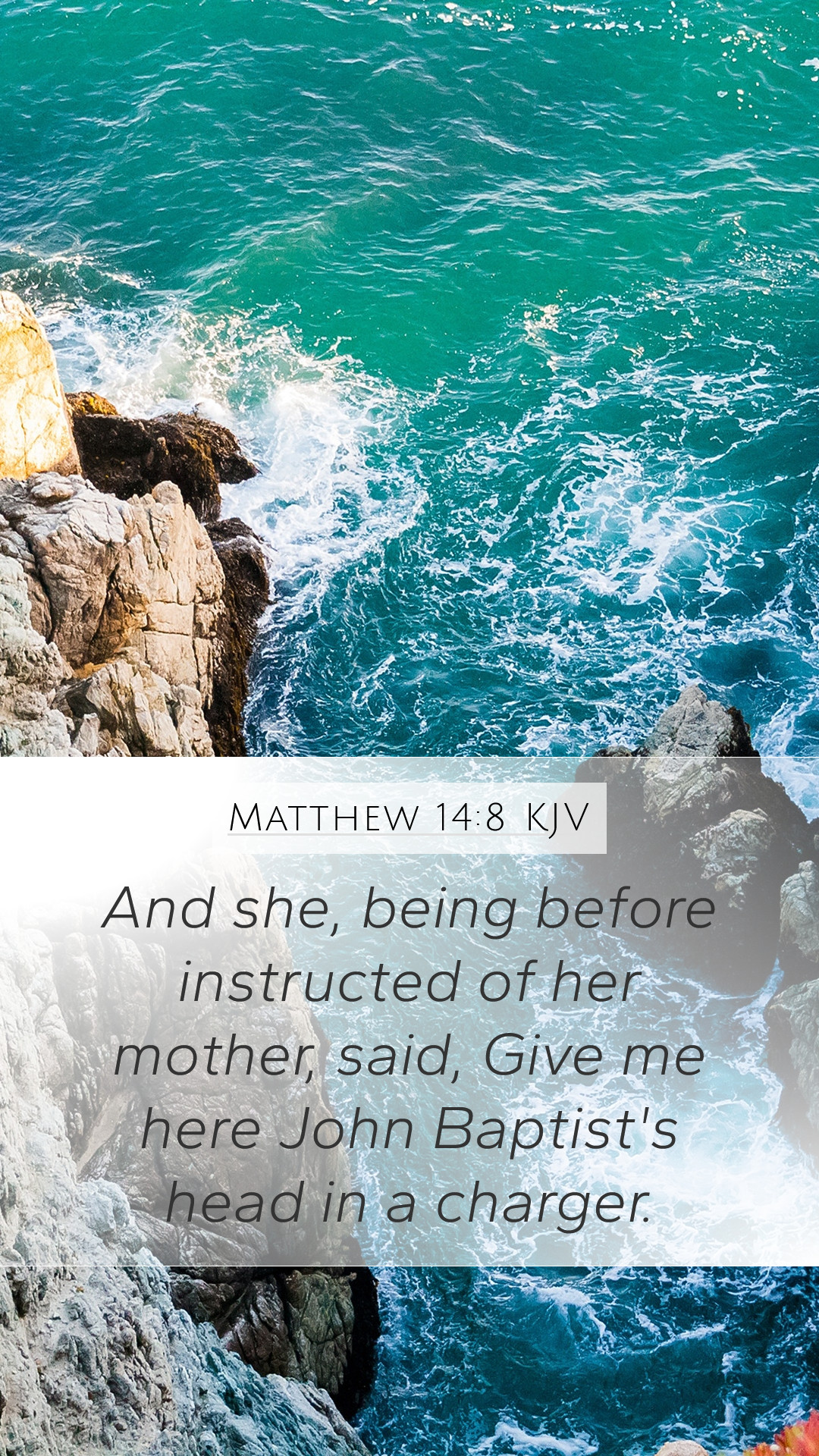Understanding Matthew 14:8
Verse Reference: Matthew 14:8
Verse Text: "And she, being before instructed of her mother, said, 'Give me here John Baptist's head in a charger.'
Bible Verse Explanation
This verse captures a critical moment in the narrative of John the Baptist's martyrdom. It highlights the influence of Herodias, the wife of King Herod, over her daughter Salome, and exposes the intricate interplay of personal ambition, manipulation, and dire consequences.
Meaning of Bible Verses
Matthew 14:8 serves as a potent reminder of the lengths to which individuals may go in pursuit of their desires. Salome’s request for John's head illustrates the devastating impact of immoral counsel and the potential for tragedy rooted in revenge and vindictiveness.
Commentary Insights
- Matthew Henry: Matthew Henry emphasizes the influence of Herodias over Salome, highlighting how parental influence can guide the choices of the young. He notes that Salome’s actions were prompted by the desires of her mother, reflecting the corrupting power of vengeance.
- Albert Barnes: Barnes comments on the expression "in a charger," which signifies a dish often used for serving important meals. This portrays the gravity of Herod's decision, equating John's death with the prestige of a royal banquet. Barnes further explores the notion of pride and the pitfalls of a weakened will when faced with public opinion.
- Adam Clarke: Clarke dives deep into the motivations behind Salome's chilling request, discussing the dynamics of power and manipulation at play. He details how the events leading up to this moment contribute to the overarching theme of moral decay and the consequences that follow.
Biblical Exegesis
Historical Context: The backdrop of this passage is significant; it reflects the political environment of Judea under Herod. Herod's earlier fear of John the Baptist, coupled with his desire to protect his reputation, creates a volatile atmosphere ripe for corruption and moral failure.
Application of the Verse: This verse invites reflection on how desires and ambitions can lead to harmful actions. It encourages readers to consider the importance of wise counsel and the ramifications of succumbing to peer or parental pressure. As part of Bible study lessons, this narrative can provoke discussions about ethical decision-making and standing firm in one’s convictions.
Cross References
- Matthew 14:3-4: Provides context about John the Baptist's imprisonment and the reasons behind Herodias' animosity.
- Mark 6:17-28: A parallel account that offers additional details to the events leading to John's death.
- 1 Kings 21:25: Illustrates the theme of wickedness influenced by strong, negative figures, akin to Herodias' influence over Salome.
Conclusion
Matthew 14:8 reveals a profound spiritual and moral lesson. By examining the verse through different commentaries, we gain a deeper understanding of its significance and implications. As we engage with scripture analysis techniques, we uncover layers of meaning that enhance our biblical study insights and deepen our understanding of scripture.
Encouragement for Bible Study
This verse, along with its insights, serves as a poignant topic for online Bible study groups, where participants can explore how to interpret Bible verses and share their interpretations. Utilizing various Bible study tools and resources can facilitate deeper discussions and personal reflections on the moral lessons depicted in this scripture.


